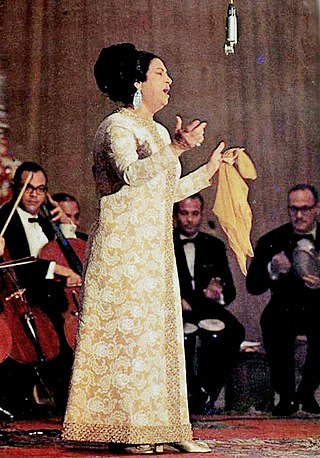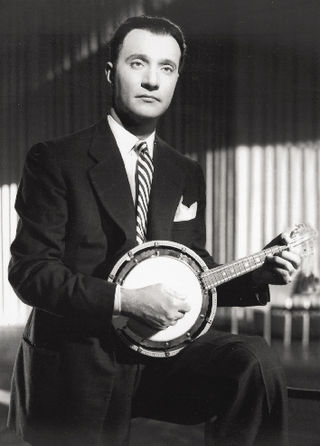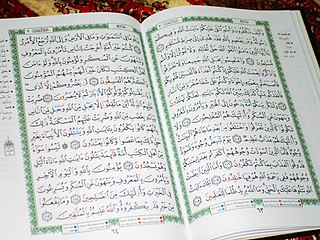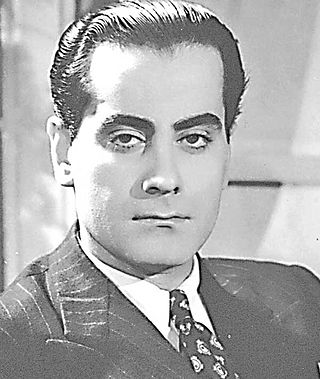Related Research Articles
Amr Abdel Basset Abdel Azeez Diab is an Egyptian singer, composer and actor. He has established himself as a globally acclaimed recording artist and author. He is a Guinness World Record holder, the best selling Middle Eastern artist, a seven-times winner of World Music Awards and five-times winner of Platinum Records.

Umm Kulthum was an Egyptian singer, songwriter, and film actress active from the 1920s to the 1970s. She was given the honorific title Kawkab el-Sharq. Immensely popular throughout the Arab World, Kulthum is a national icon in her native Egypt; she has been dubbed "The Voice of Egypt" and "Egypt's Fourth Pyramid". In 2023, Rolling Stone ranked Kulthum at number 61 on its list of the 200 Greatest Singers of All Time.
Arabic music is the music of the Arab world with all its diverse music styles and genres. Arabic countries have many rich and varied styles of music and also many linguistic dialects, with each country and region having their own traditional music.

The Arabic script has numerous diacritics, which include consonant pointing known as iʻjām (إِعْجَام), and supplementary diacritics known as tashkīl (تَشْكِيل). The latter include the vowel marks termed ḥarakāt.
"Misirlou" is a folk song from the Eastern Mediterranean region. The song's original author is unknown, but Arabic, Greek, and Jewish musicians were playing it by the 1920s. The earliest known recording of the song is a 1927 Greek rebetiko/tsifteteli composition. There are also Arabic belly dancing, Albanian, Armenian, Serbian, Persian, Indian and Turkish versions of the song. This song was popular from the 1920s onwards in the Arab American, Armenian American and Greek American communities who settled in the United States.

Samira Abdelrazak Bensaïd, professionally known as Samira Said, is a Moroccan-Egyptian singer who has lived in Egypt for more than 40 years and is known for her Egyptian Arabic genre.

Mohamed Abdel Wahab, also transliterated Mehammad Abdelwehab, Egyptian Arabic pronunciation:[mæˈħam.mædʕæbdelwæhæːb], was a prominent 20th-century Egyptian singer, actor, and composer. He is best known for his Romantic and Egyptian patriotic songs.

Abdel Halim Ali Shabana, commonly known as Abdel Halim Hafez, was an Egyptian singer, actor, conductor, businessman, music teacher and film producer.

Latifa bint Alaya El Arfaoui, better known as Latifa, is a Tunisian pop singer and former actress who resides in Egypt, and one of the most known and best-selling singers in the Arab world. She is known for her Tunisian and Egyptian Arabic genre. She sings with 3 different languages, Arabic, French and English. She received the World Music Awards in 2004 for best selling Artist in the Middle East and she is the first Tunisian receiving this award in history.

In the context of the recitation of the Quran, tajwīd is a set of rules for the correct pronunciation of the letters with all their qualities and applying the various traditional methods of recitation (Qira'at). In Arabic, the term tajwīd is derived from the verb جود, meaning enhancement or to make something excellent. Technically, it means giving every letter its right in reciting the Qur'an.
Arabic hip-hop is a segment of hip hop music performed in the Arabic-speaking world. Due to variety of dialects and local genres which exist in the localities, Arabic hip-hop music may appear very diverse depending on the country of the song. Like most artists of the genre, the hip-hop artists from the Arabic-speaking world are highly influenced by American hip-hop.

Sherine Sayed Mohamed Abdel Wahab, known professionally as simply Sherine, is an Egyptian singer, actress and music judge who is dubbed "The Voice of Egypt". Sherine was formerly a judge on MBC's The Voice: Ahla Sawt.
Arabic pop music or Arab pop music is a subgenre of pop music and Arabic music.

Farid al-Atrash, also spelled Farid El-Atrache, was a Syrian-Egyptian singer, oudist, composer, and actor. Although born in Syria, he immigrated to Egypt at the age of nine with his mother and siblings, where he eventually became one of the most noted figures in 20th-century Arabic music.

"Helwa ya baladi" is an Egyptian Arabic song by Dalida from 1979, enjoying great popularity in the Middle East and the Arab diaspora. The song is an homage to Egypt, Dalida's birthplace, and is considered representative of the nationalistic pride felt by many Egyptians.

"Wallāh Zamān, Yā Silāḥī" was the national anthem of the United Arab Republic (UAR), a federation of Egypt and Syria, from 1960. Though the UAR disbanded in 1961, Egypt retained it as the official name of the state until 1971, and used its national anthem until 1979.
Shaabi is an Egyptian musical genre. It is a form of popular working-class music which evolved from Egyptian Baladi in the second half of the 20th century, it's the core of Egyptian people music in streets and weddings and every day Egyptian life.

Tarek Abdallah is an Egyptian oud player, composer and musicologist who lives in France.

Sabri Moudallal was a singer and composer of traditional Syrian music, as well as a businessman.
References
Other sources
- Racy, Ali Jihad (1983). "The Waslah: a Compound Form Principle in Egyptian Music", Arab Studies Quarterly, v. 5, no. 4, pp. 396-403.